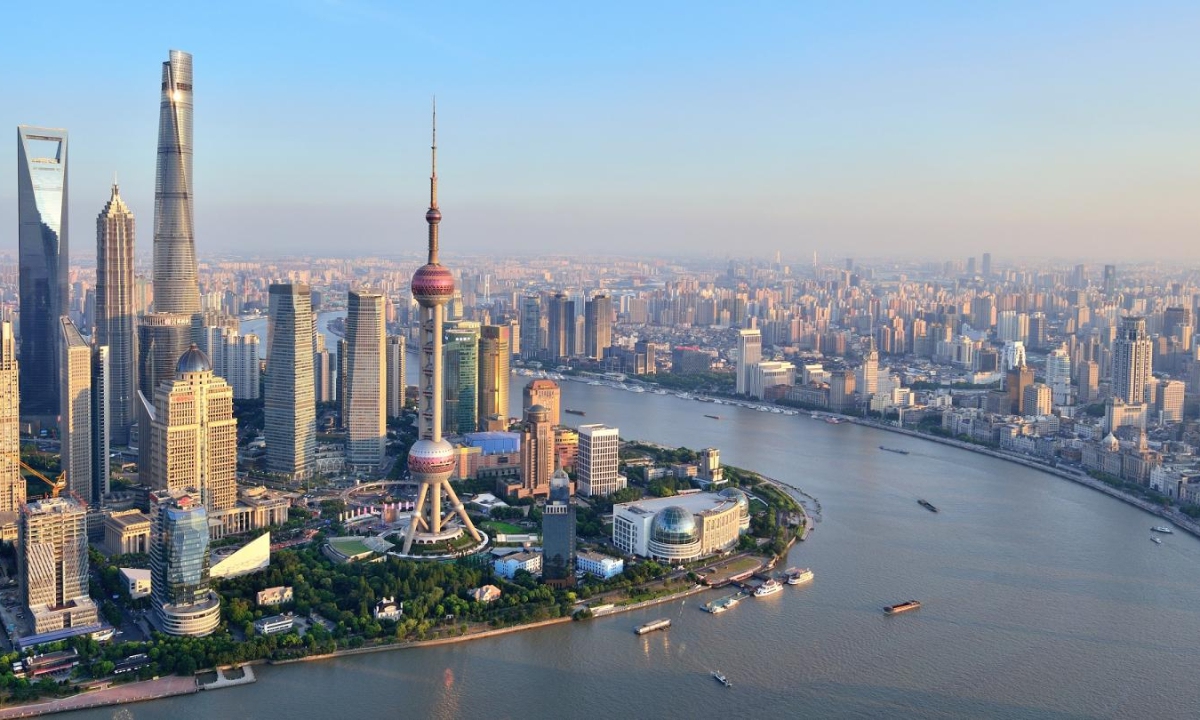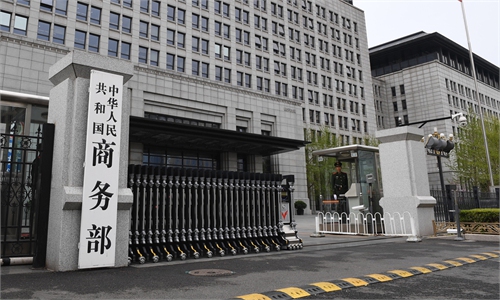
Lujiazui area in Shanghai Photo:Xinhua
Currently, many people in the US believe that the Chinese economy is in decline and will continue to decline indefinitely.
I believe, the reality of the situation is very different. If we consider the evolution of China's economy over the last 40 years, its initial competitive advantage, which propelled it to the status of the world's manufacturing capital, was rooted in low-cost labor. This advantage allowed China to produce less sophisticated, manufactured products. As low-cost labor shifted to other countries like Mexico, Vietnam, Cambodia and Thailand, China swiftly transitioned down the value curve and emerged as the leading force in high-end, sophisticated manufacturing globally. Through well-established supply chains, China became the world's largest exporter by a significant margin.
China then launched its "Made in China 2025" initiative, committing to promoting breakthroughs in 10 key sectors within a 10-year period, and it has done so very effectively. Notably, in renewable energy, especially electric vehicles, China has positioned itself as the largest manufacturer and exporter of electric vehicles globally. People who are deep into the auto industry would say that Chinese cars are the best-made and most sophisticated worldwide, which is why people are buying them. Ultimately, within a relatively short span, China, once a negligible player in the global automobile industry, has swiftly ascended to a position of world leadership.
If we analyze the success of China's economy, a significant factor lies in its industrial policies. China is notably unique among major countries in articulating nationwide priorities, determining where it aims to achieve leadership, and mobilizing resources. This includes not only private industries but also state-owned enterprises, academics, and experts from various fields. The government supports these initiatives with tax breaks, encouraging the development of targeted industries. The US has only recently begun adopting a similar approach, particularly concerning chips. However, the sophistication required to make this model effective is substantial, and the US has a long way to go. Another significant advantage China possesses is its education system. In the evolving high-tech landscape, the key contributors are students deeply immersed in science, technology, engineering, and mathematics (STEM). The reality is that China currently boasts more STEM students than the rest of the world combined. In contrast, the decentralized nature of the US education system, which is difficult for a federal government to fundamentally change, making it challenging to produce a larger number of individuals who can thrive on the cutting edge of the new high-tech society.
Looking ahead, the notion that China's economy is in decline is wishful thinking. This perspective is not new. Gordon Chang wrote a book several years ago titled The Coming Collapse of China, which, obviously, never happened. Periodically, someone has been coming out with a book like that every other year or every year in the US, and the predicted collapse never happens. That is because the US basically underestimates the effectiveness of the Chinese government's industrial policies, the work ethic of the Chinese people, which is significantly stronger than in the US, and the resilience of China as a whole. When China needs to take action to strengthen its economy and get it back on track, it has the commitment of a population that is dedicated, hardworking and ambitious. This was evident in the recent economic results for the 4th quarter, which, despite predictions of another dip in China, came in at 5.2 percent, remaining significantly stronger than that of almost any other developed country.
The author is a speaker on China-US relations and author of the book Powerful, Different, Equal: Overcoming the misconceptions and differences between China and the US. opinion@globaltimes.com.cn


